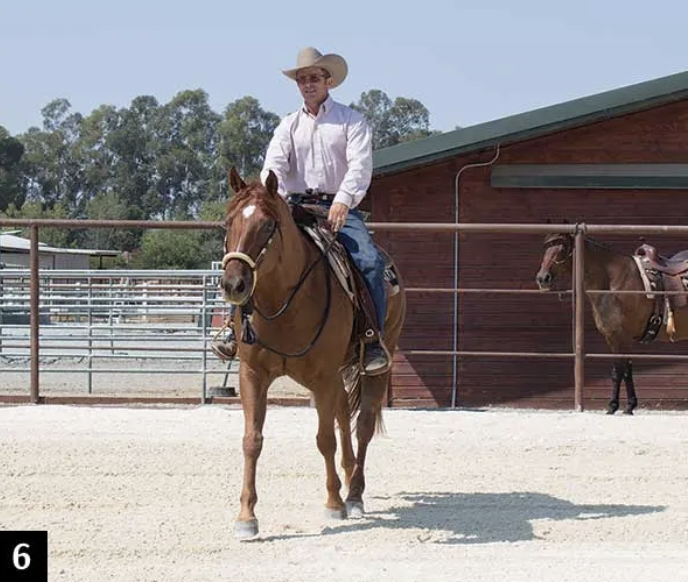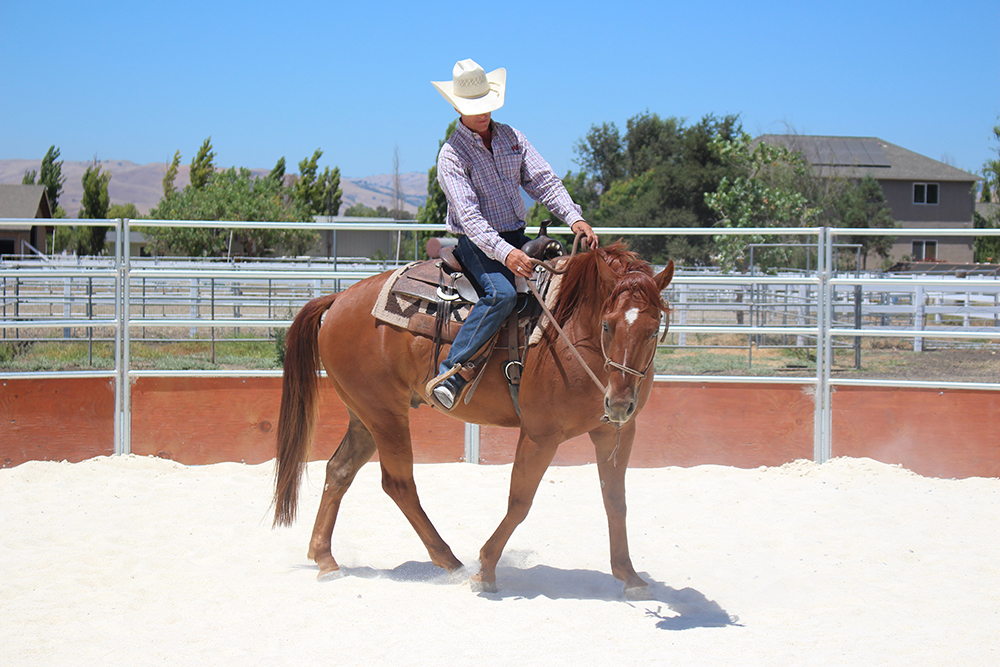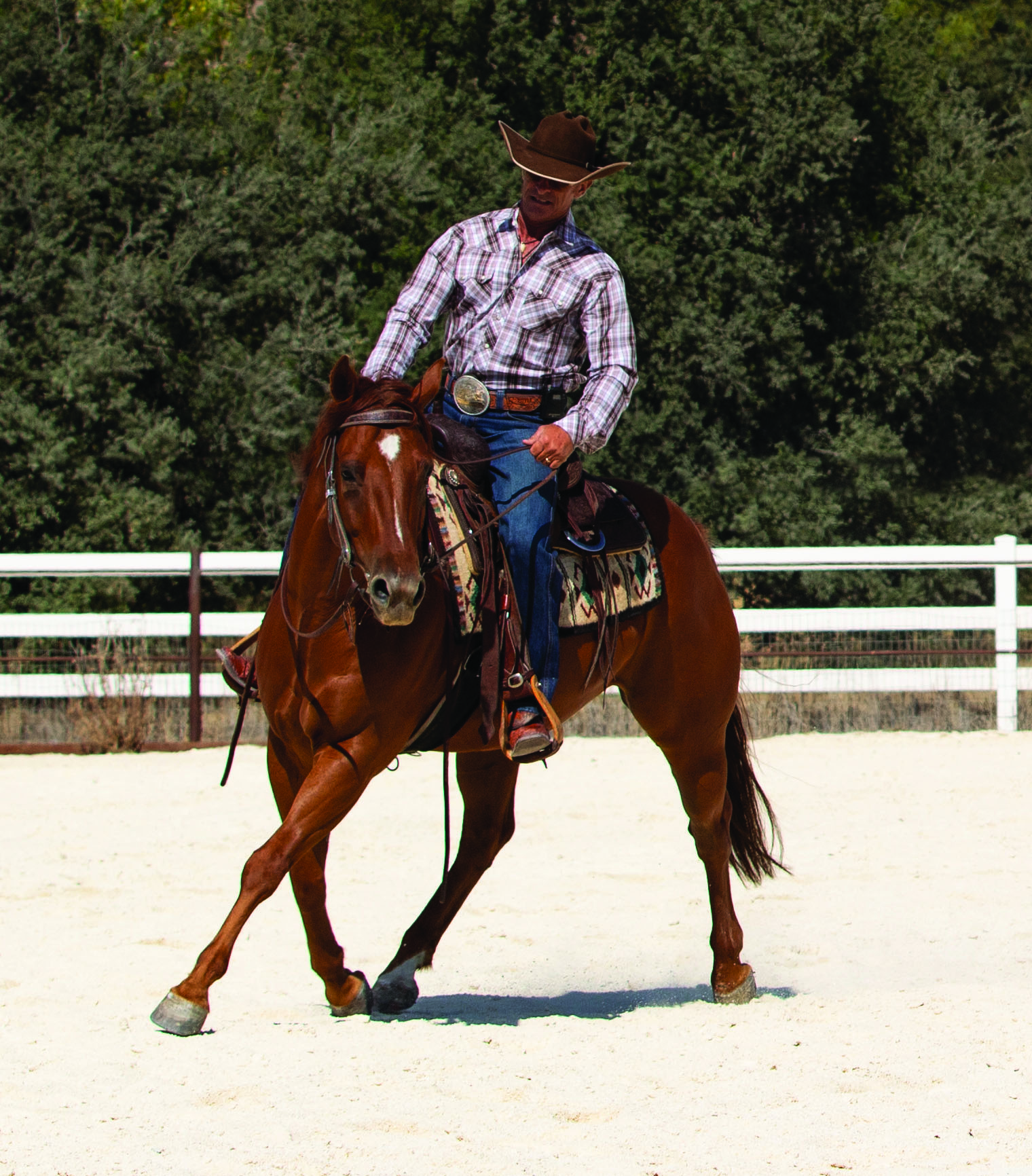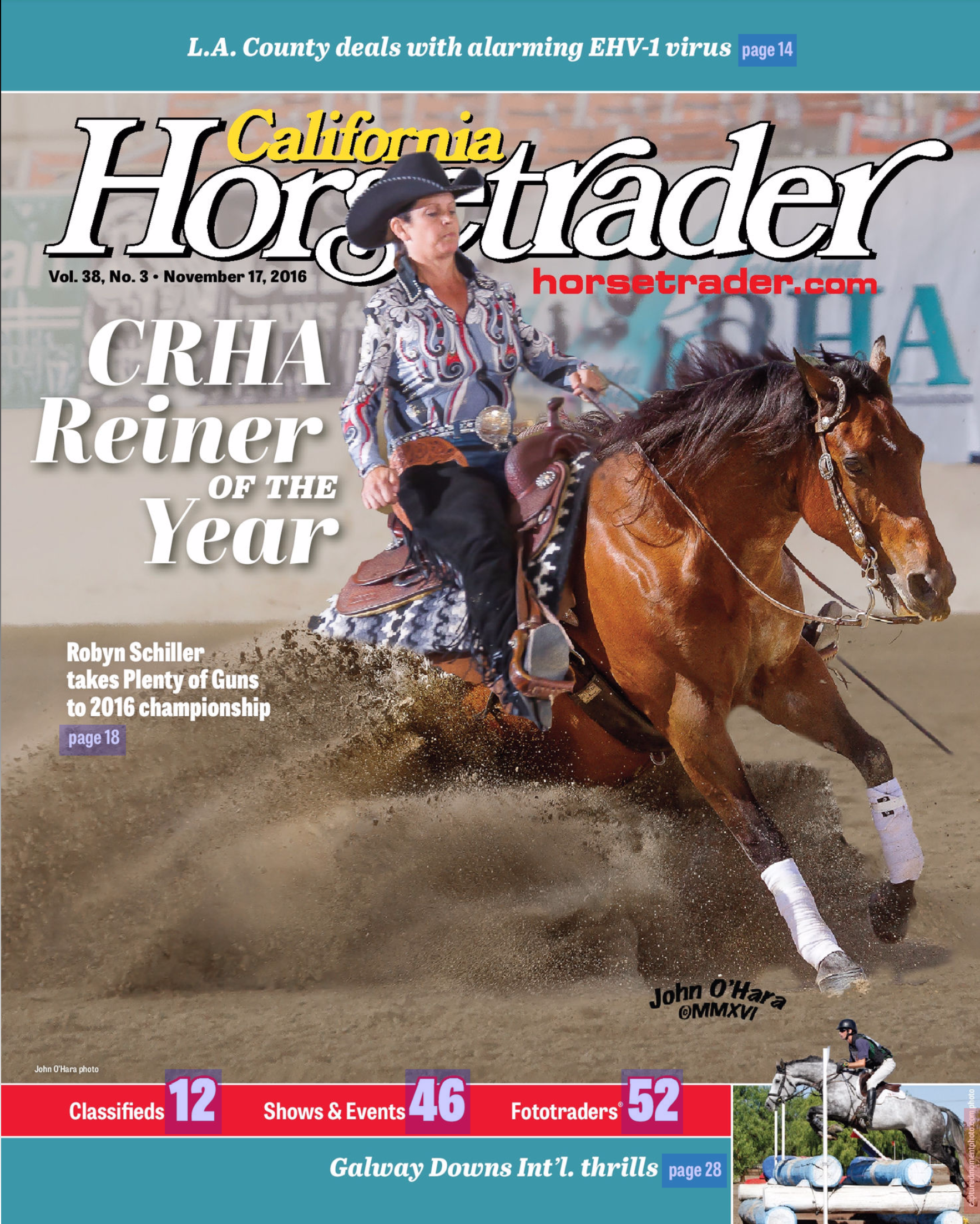Destination Addiction – Horse & Rider Magazine March 2018
https://horseandrider.com/western-horse-training-tips/destination-addiction
From March 2018 Click on Link for Article.

https://horseandrider.com/western-horse-training-tips/destination-addiction
From March 2018 Click on Link for Article.


The 8 skills your horse needs to know:
Everything we do is a combination of these 8 things.
You can see how to teach your horse these on our video site: videos.warwickschiller.com Just follow the First Rides and Basic Body Control videos.
Click on the photo below to read Warwick’s January 2019 Horse & Rider Magazine article.

https://horseandrider.com/training/warwick-schiller-slow-down-a-fast-lope?utm_source=HorseandRiderFB
MAKE THE WRONG THING HARD AND THE RIGHT THING EASY
The basic tenant of this principle is leave your horse alone while he is doing what you want.
DON’T GO TO BED ANGRY
When your horse is no longer relaxed, you need to get him relaxed again before proceeding. (Like a married couple, if
anything has built up during the day, get rid of it before you
go to bed.)
CREATE A TOOL BEFORE YOU USE A TOOL
When solving a problem you need to make sure the tool or exercise you are using to solve the problem is fully functional
before you use it.
APPLICATION OF YOUR AIDS
Also known as order of cues, this principle is very important in teaching a horse how to respond to subtlety.
DO THE OPPOSITE
As the olde English saying goes “You ride a slow horse fast and a fast horse slow.”
THE DONKEY KONG PRINCIPLE
This horse training principle, like Donkey Kong or any other video game, relies on the idea that whenever you get something wrong, you return to the beginning and start all over again.
CHOOSE WHERE YOU WORK AND CHOOSE WHERE YOU REST
Be aware of your horses internal GPS and their ability to recall places where no rest occurs. An amazing tool to that is one of
the foundations of Warwick’s training.
THEY NEED TO KNOW THE ANSWER BEFORE YOU ASK THE QUESTION
Similar to how we teach children to count before they add,
and add before they multiply, because the answer to the current question lies in the previous teaching.
ISOLATE, SEPARATE, RECOMBINE
Anytime you are asking a horse to do two or more things at once they need to know them perfectly well separately.
When you put them together and it is not working you need to mentally isolate the one that is not working, separate it and correct the issue before recombining them.
ANTICIPATION IS YOUR BEST FRIEND OR YOUR WORST ENEMY
Horses are masters at anticipation and knowing when to enhance it and when to suppress it is a key element of training.
CHANGE ONE THING AT A TIME
When it’s time to add something, make sure you only change one thing a time so you know what works or doesn’t work.
WORK WITH THE HORSE YOU HAVE TODAY
No two days are the same, do not work with a horse with any preconceived notions or expectations. Work with the horse that is in front of you right now and do what that horse needs.
You can see all these videos on our online video library: videos.warwickschiller.com
Click below to read a great article by Warwick that was featured in the Horsedeals January 2019 magazine.
This is the audio from Warwick’s Clinician Unmounted session at the 2017 Pomona Horse Expo entitled Everything in Life I learned, I learned from horses.
This is the audio from Warwick’s Clinician Unmounted session at the 2017 Pomona Horse Expo entitled The Principles of Training.
This is the audio from Warwick’s Clinician Unmounted session at the 2016 Western States Horse Expo entitled Finding the Sweet Spot.
This is the audio from Warwick’s Clinician Unmounted session at the 2017 Pomona Horse Expo entitled How to survive a plane crash with your horse.
From John Harrer’s WHOAPODCAST:
http://whoapodcast.com/clinician-warwick-schiller/
“Growing up in Australia a young Warwick Schiller was hungry for horse news and studied Western Horseman magazine like he was cramming for a final. He says that even today if you show him a cover from the 70’s he can likely tell you one of the articles inside. Yet he began his working career as a banker. It was on a sabbatical from banking that Warwick came to America and found a job working for a reining trainer. Working with a reining trainer gave Warwick the foundation he needed to become a clinician. Now, Warwick Schiller travels the world giving clinics and demonstrations on his unique style of horsemanship.
I really enjoy talking with Warwick. He studies everything. Philosophy, efficiency, psychology are just a few of the areas Warwick explores to learn more about horsemanship. Warwick Schiller will be one of the speakers at the Best Horse Practices Summit in the fall of 2017. Best Horse Practices explores the principles of Evidenced-based Horsemanship.
Warwick Schiller has a new TV program on Farm & Ranch TV (available on ROKU) called The Principles of Horsemanship. It’s here where Warwick talks about the difference between learning techniques and principles. Using these principles, Warwick believes you can develop the techniques that work for you to build your horsemanship.”
http://www.bridleandbit.com/artman/publish/article_40265.shtml
Click below to see the article in Horse & Rider UK called Space Invader
http://content.yudu.com/htmlReader/Aoy9u/Horsetrader/reader.html?page=19

http://www.brunetteinbreeches.com/how-horse-training-relates-to-life/